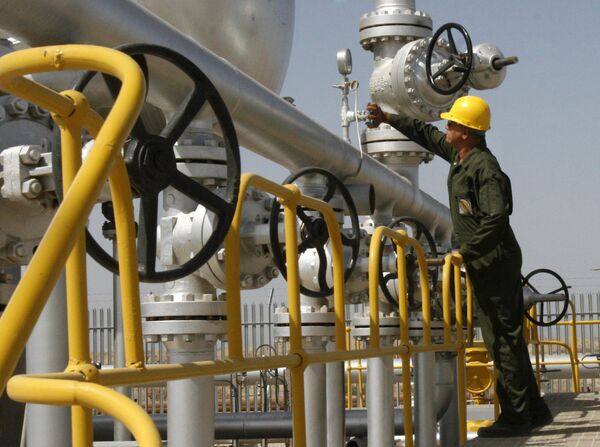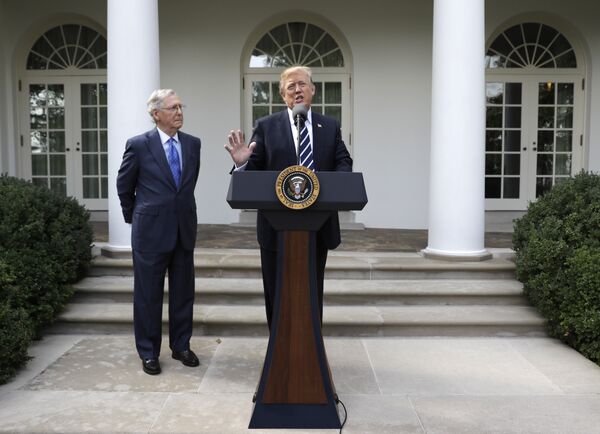Sputnik: What is this going to do to oil prices? Do you think we're going to see a serious answer by the oil industry to China's response to the US measures?
Phil Levy: There's two ways that you could have effects on oil prices. One is a direct effect, where experts are blocked, and the other is indirect, where if you get let's say a global economic slowdown, that would usually push oil prices [down].
I would worry more about the second than the first. While oil and energy flows are not totally interchangeable – you have different types of crude and different types of processing, there's a fair bit of substitutability possible. If China doesn't buy from the United States, they can buy from somebody else. And if the United States doesn't sell to China it can sell to somebody else. So I think it's much more that second effect of a global slowdown that's worrisome.

Sputnik: There's also this interesting possible scenario where the Chinese could replace part of the US oil they purchase with Iranian oil. What kind of reaction do you think we can expect from Donald Trump if that happens?
This is exactly the kind of spillover that one might get. The administration has been trying to rally people to deal with the situation in Iran, and this is not going to help their cause.
Sputnik: What is this going to do to oil prices? Because we saw a reaction by the oil markets when Trump decided to pull out of the JCPOA, and there was fear that something would happen with sales of Iranian oil — there was quite a reaction by the markets. What do you think that a Chinese bid to buy more Iranian oil would do to the markets?
Phil Levy: My expectation is that if the markets had placed a reasonable probability that Iran might be excluded, and then the Chinese move makes it more likely that Iranian oil is part of the global supply, that would push prices down; you would see an increase in aggregate oil supply globally relative to what countries and market players had been expecting beforehand. So there would probably downward pressure on prices.

Sputnik: Do you think we are going to see an about-face? Of course, Donald Trump is very, very difficult to predict, but do you think that we will see enough pressure exerted on him from his own peers, from his fellow Republicans and from his own administration?
Phil Levy: I doubt you'll see a lot of pressure from within his administration, since many of the strongest trade advocates have departed and he's elevated people who are more skeptical of trade. I think from within the party you've seen this pressure all the way along, where leading members of Congress have tried to press the president on the importance of trade for the United States. That argument does not seem to have one the day with him.

Sputnik: What do you think the Chinese are going to do?
Phil Levy: I think what we've seen that both for the Chinese response and also the European response, the norm now is to go after industries where you can inflict maximum political pain. We had seen an earlier move against US agricultural exports on things like sorghum, soybeans in many of these Red states in the middle of the country…[where] supporters of President Trump…will really feel this.
But I think the noteworthy thing about the way that China has responded is that they've tried to be very transparent that they do not want a trade war, that they are happy to engage in negotiations. They sent a top figure, Liu He, to Washington to do those negotiations. Those have not worked out as well as I'm sure they hoped. But they have then said that they would retaliate, where the retaliation is very precisely matched in magnitude to what the US has done.
Phil Levy is a senior fellow at the Chicago Council on Global Affairs and a former economic adviser for the Bush administration. The views expressed by Dr. Levy are those of the expert, and do not necessarily reflect those of Sputnik.





